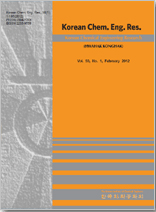Articles & Issues
- Language
- korean
- Conflict of Interest
- In relation to this article, we declare that there is no conflict of interest.
- Publication history
-
Received December 13, 2023
Revised December 23, 2023
Accepted December 23, 2023
-
 This is an Open-Access article distributed under the terms of the Creative Commons Attribution Non-Commercial License (http://creativecommons.org/licenses/bync/3.0) which permits
unrestricted non-commercial use, distribution, and reproduction in any medium, provided the original work is properly cited.
This is an Open-Access article distributed under the terms of the Creative Commons Attribution Non-Commercial License (http://creativecommons.org/licenses/bync/3.0) which permits
unrestricted non-commercial use, distribution, and reproduction in any medium, provided the original work is properly cited.
Latest issues
발사장 주변 해상의 공공안전 위협요인에 대한 개선 대상 분석
Analysis of Improvement Targets for Public Safety Threats in the Maritime Area Around the Launch Site
 Download PDF
Download PDF
Abstract
발사 전 발사장 주변 해상 위험구역 안전확보는 필수 조건이다. 해상안전이 확보되지 못한 경우 발사는 중지 또는
연기되는 상황에 직면하게 된다. 하지만, 수상 레저 활동 인구 증가 등으로 해상 공공안전 확보에 어려움이 발생하고
있다. 통제해역 내 선박 진입, 수상 레저 장비의 무단출입과 소개 명령 불응이 해당 된다. 본 논문에서는 발사체 개발
및 발사장 운영 전문가 등 22명을 대상으로 델파이/ 계층분석법을 활용하여 해상 공공안전 위협요인을 10개 항목으로
도출하고, 해상안전 확보를 위하여 개선하여야 할 항목 5개를 도출하였다. 본 논문에서 분석한 결과 해상안전 확보를
위하여 가장 개선이 필요한 항목은 발사장 주변 위험구역 설정과 통제에 대한 관계법령 개정이나 단행법 제정 필요성
이 있다. 본 논문은 전문가 의견에 대하여 중요도와 우선순위를 분석하고 일관성을 검증하여 객관적인 의견을 제시한
부분에 의미가 있다고 사료 된다.
Securing safety in the maritime danger zone around the launch site before a launch is a fundamental
requirement. If maritime safety is not ensured, the launch is halted or postponed. However, challenges have arisen in the
process of securing public safety at sea due to factors such as the increasing population engaged in water leisure activities.
These challenges include unauthorized entry of vessels into controlled areas, unauthorized access by water leisure activity
participants, and non-compliance with regulations. In this paper, we employed the Delphi/Analytic Hierarchy Process to
survey 22 experts, including professionals in launch vehicle development and launch site operation, to identify 10 factors posing
threats to maritime public safety. Additionally, we identified five issues that need improvement for ensuring maritime
safety. This study verified the consistency of expert opinions and conducted an analysis of importance and prioritization,
objectively confirming the necessity for amendments to relevant laws or the enactment of new laws concerning the
establishment and control of danger zones around launch sites.
Keywords
References
2. Park, K. T., “Research on the Necessity of Building the Second
Space Rocket Launching Sites for Breakthrough Development
of R.O.K National Space Power,” Journal of Space Technology
and Applications, The Korean Space Science Society, 2(2), 146-
168(2022).
3. Kehler, C. R., Starbuck, F. R., Eastern and Western Range (EWR)
127-1 Range Safety Requirements. tech. rep., 45th Space Wing
and 30th Space wing (1997).
4. Ko, J. H., Choi, K. S., Sim, H. S., Roh, W. R., Park, J. J. and
Cho, G. R., “Flight Safety Operation for the 1st Flight Test of
Naro(KSLV-I),” Journal of the Korean Society for Aeronautical
& Space Sciences, 38(3), 280-287(2010).
5. Gayle, J. B. and Bransford, J. W., “Size and Duration of Fireballs from Propellant Explosions,” NASA TM X-53314(1965).
6. Sim, H. S., Choi, K. S. and Cho, S. Y., “Analysis Methodology
for Fragment Distribution of a Failing Launch Vehicle Veering off
the Course by Malfunction Turn,” Current Industrial and Technological Trends in Aerospace, 14(1), 121-132(2016).
7. Sim, H. S., Choi, K. S. and Cho, S. Y., “Risk Analysis around
Planned Impact Areas of Space Launch Vehicle,” 2022 Fall KSAS
Conference, 1,249-1,250(2022).
8. Sim, H. S., Choi, K. S. and Cho, S. Y., “Analysis Methodology
for Fragment Distribution of a Failing Launch Vehicle Veering
off the Course by Malfunction Turn,” Current Industrial and
Technological Trends in Aerospace, 14(1), 121-132(2016).
9. Baek, S. H., Lee, A. Y., Park, Lee, W. S. and Choi, K. S., “Study
on the Method to Improve a Maritime Safety by Analysing the
Distribution Characteristics of the Ships on Marine Firing Range,”
Journal of the Korean Society of Safety, 35(3), 79-85(2020).
10. Shin, A. T., Park, B. M. and Byun, H. S., “An Analysis of Threat
Factors for Strengthen Maritime Safety around Delphi/AHP-Based
Launch Site and Flight Paths,” Korean Chemical Engineering
Research 61(2), 208-216(2023).
11. Jung, Y. H. and Park, J. B., “A Plan for Revitalization of the Fishing Industry to Promote Marine Leisure Sports,” Korean Journal of
Sports Science, 32(3), 407-425(2023).
12. Shin, A. T., “Report on the Results of Launch Safety Control
Mission for NURI,” KARI-FSD-ELN-2022-001(2022).
13. Amendments to Resolution A.706(17)-World Wide Navigational
Warning Service, International Maritime Organization(2013).
14. Launch Safety Control Plan, Launch Safety Control Council, FSD01-005(2023).
15. Dalkey, N. C., “The Delphi Method: An Experimental Study of
Group Opinion,” RAND Corporation Memorandum RM-5888-
PR(1969).
16. Chung, K. S., Kang, M. H. and Kim, Y., “A Delphi Study on
Software Project Risks. Information System Research,” The Korea
Society of Management Information Systems, 13(1), 1-20(2004).
17. Lawshe, C. H., “A Quantitative Approach to Content Validity,”
Personnel Psychology, 28(4), 563-575(1975).
18. Ayre, C. and Scally, A. J., “Critical Values for Lawshe’s Content
Validity Ratio: Revisiting the Original Methods of Calculation,”
Measurement & Evaluation in Counseling & Development, 47(1),
79-86(2014).
19. Saaty, T. L., The Analytic Hierarchy Process: A New Approach
to Deal with Fuzziness in Architecture,” Architecture Science
Review. 25, 64-69(1982).
20. Saaty, T. L. and Kearns, K. P., Analytical Planning: The Organization of Systems, The Analytic Hierarchy Process Series, RWS
Publication 4, Pittsburgh(1991).

